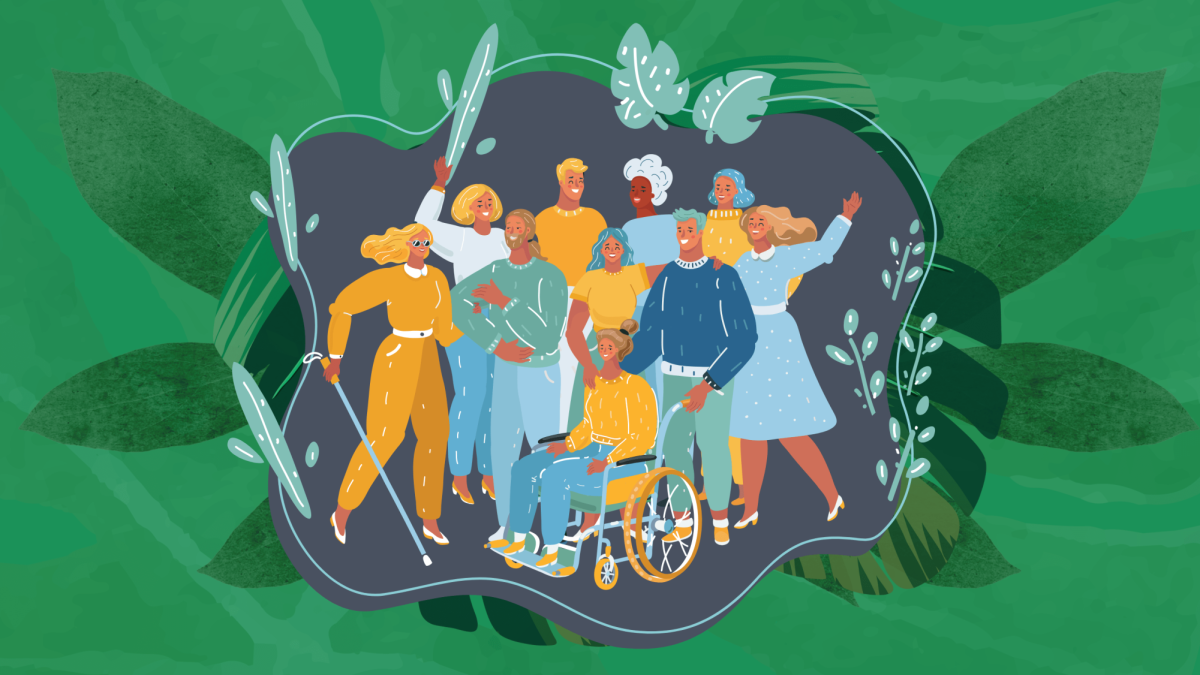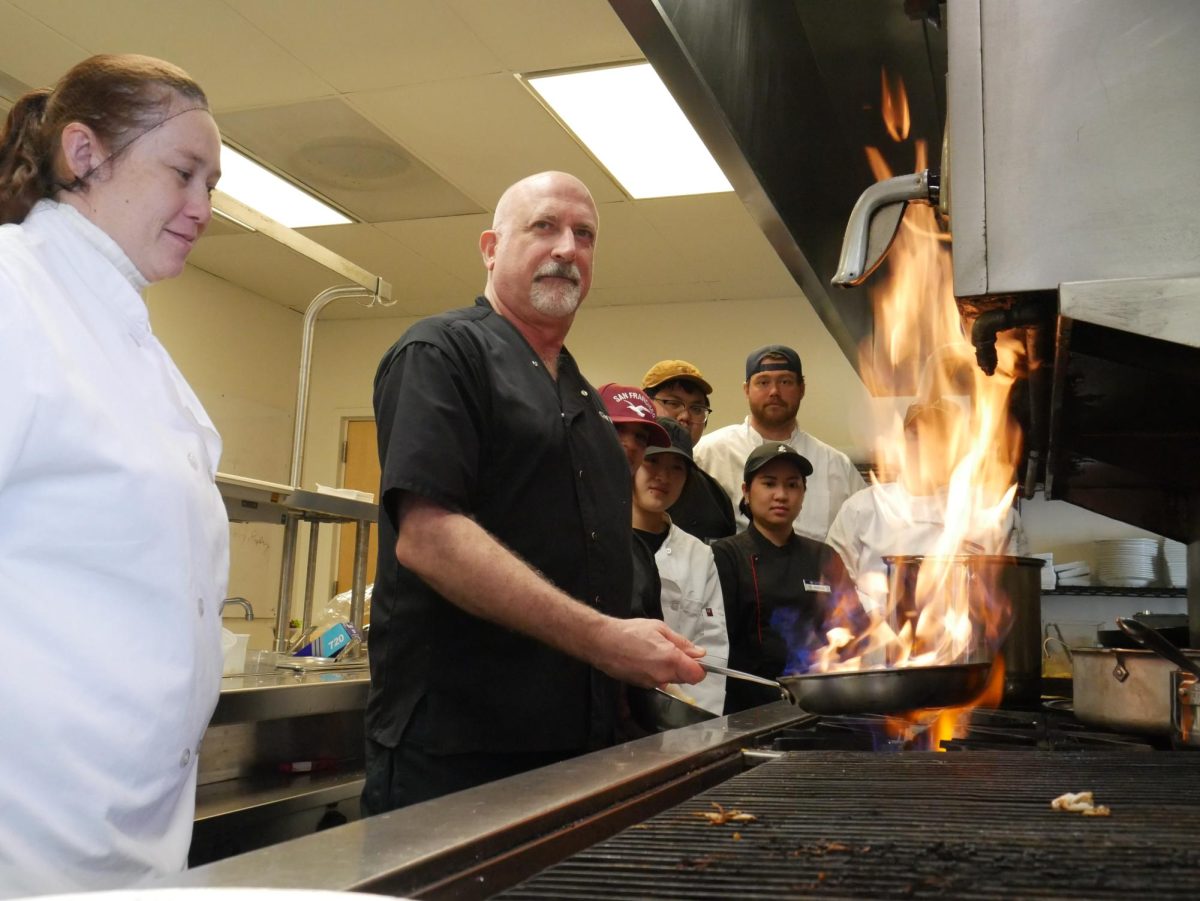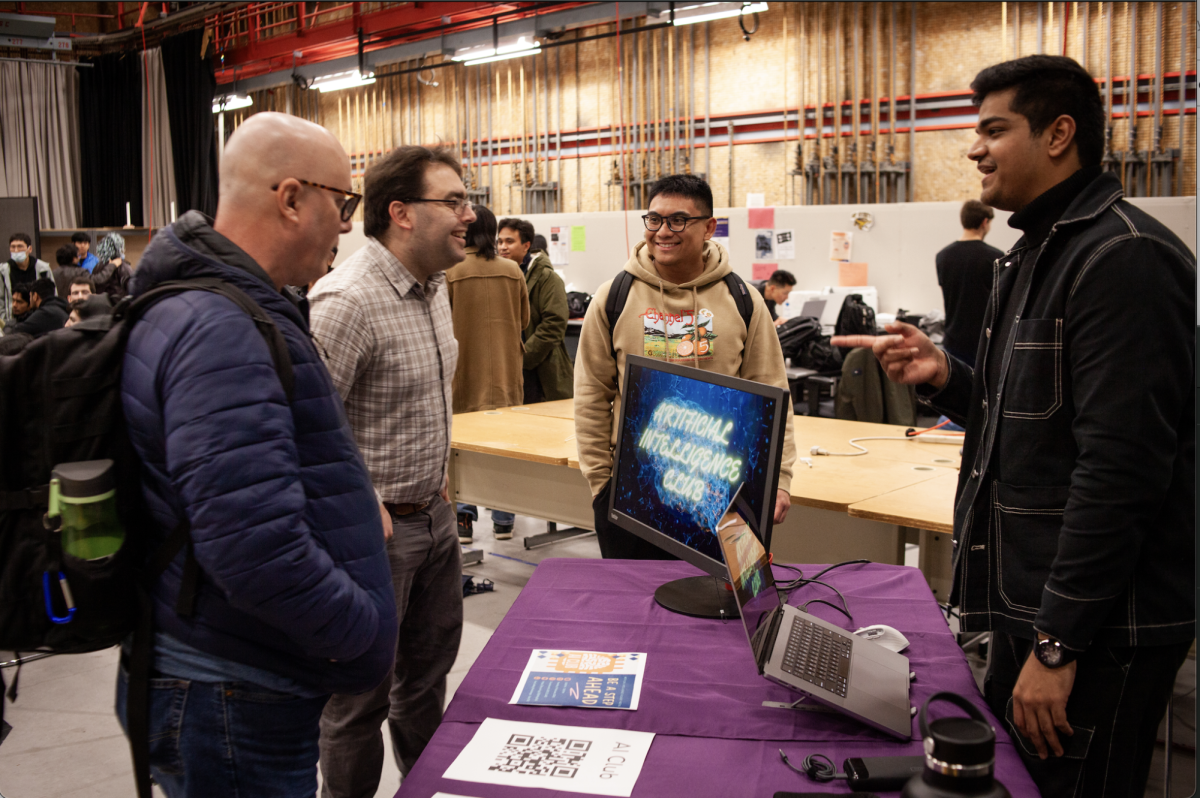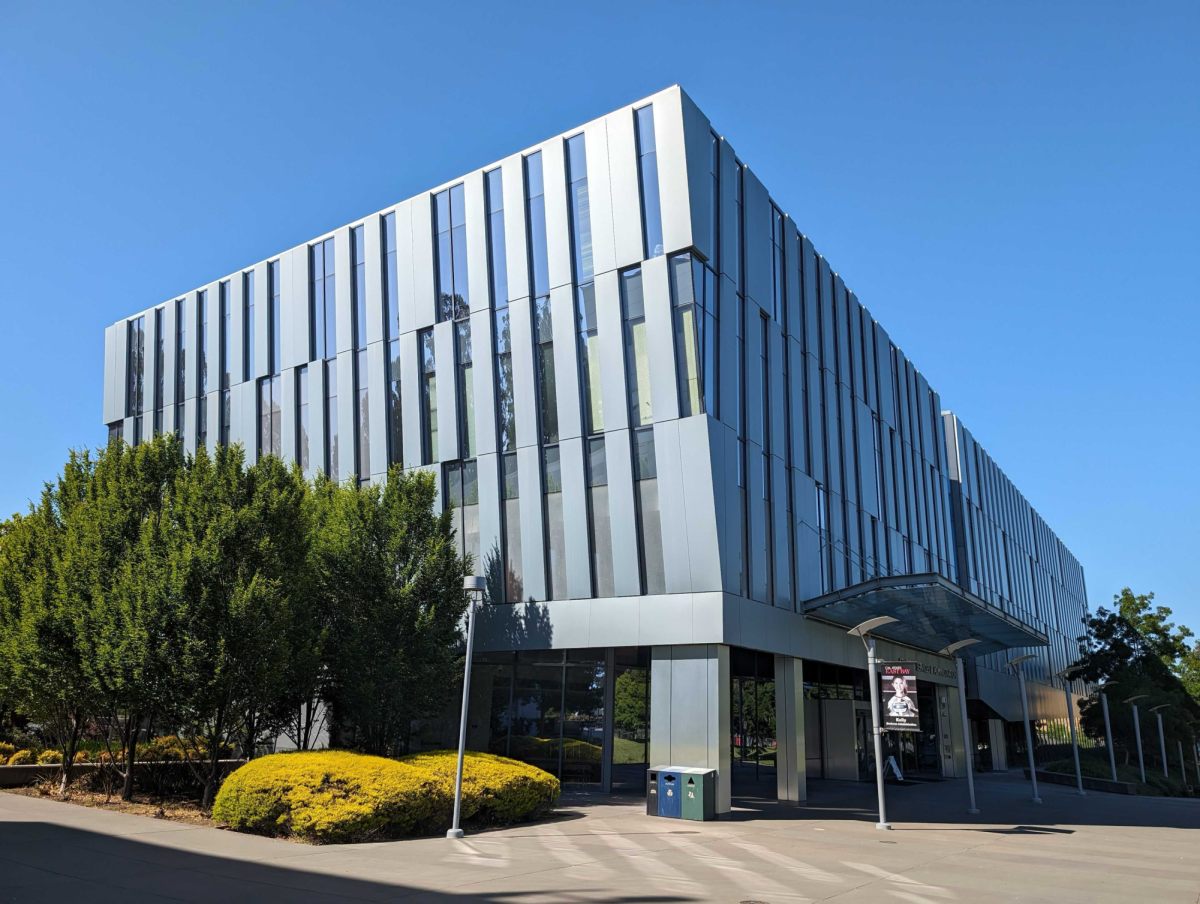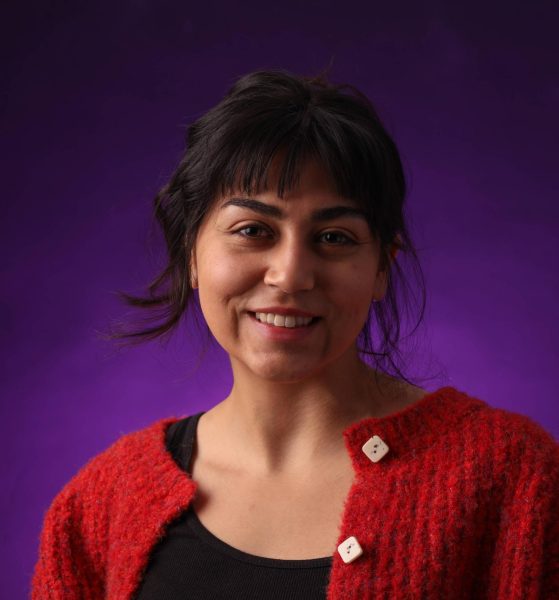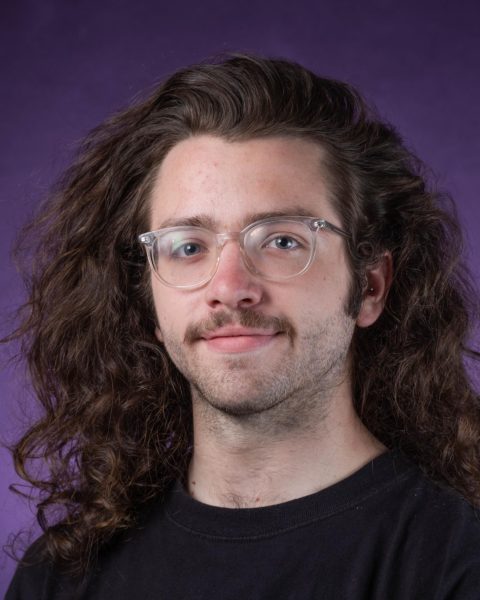After moving to California from Saudi Arabia in 2016, an acceptance into a disabilities support program at San Francisco State University was the furthest thing from Delilah Tesfalidet’s mind.
“There isn’t much to offer for women there, to be honest, which is part of the reason why I moved here,” said Tesfalidet, a psychology major. “To get higher education and maybe start a career, make something out of myself. Even though they offer a lot of great new opportunities, like women being able to work, they still don’t offer universities.”
Tesfalidet, who is an international student, eventually found her way onto SFSU’s virtual campus during the COVID-19 pandemic in 2020 but it wasn’t until three years later that her learning dynamic shifted.
In 2023, she was diagnosed with Guillain-Barré Syndrome. According to the Johns Hopkins Medicine website, it’s a condition that only affects 3,000 people in the U.S. and is “a neurological disorder in which the body’s immune system attacks the peripheral nervous system.”
“Well, it’s like a rare disease and it caused me to be fully paralyzed,” Tesfalidet said. “And then I was on life support for a little bit too. But now I’m blessed and grateful that I’m doing much better. But it has always been difficult to kind of adjust back into, like the regular schedule and reality of what my life was before.”
As the nervous system is under attack, some of the body’s muscles are unable to respond to nerve and sensory signals, resulting in the loss of sensations and increased fatigue.
Despite this change in her body, Tesfalidet still manages a full semester’s load— 30 units to be exact. She is enrolled in five in-person SFSU classes and a mix of 5 online and in-person courses at another school.
Although she believes that she “absorbs the material a lot better, rather than online,” Tesfalidet said that she notices her body become more tired throughout the school day.
“Now being disabled, it is physically exhausting to go to campus all the time for classes,” she said. “It takes a lot of energy out of me to go to school, to like, concentrate in class. Sometimes I have a lot of pain in my body. But I always carry medicine just in case because honestly, I don’t think I can get throughout the day without it.”
This is why Tesfalidet wants to join SFSU’s Disabilities Program and Resource Center. The DPRC offers support in academic and transportation accommodations to students who have physical, mental and learning disabilities, both seen and invisible to the naked eye.
“It’s about creating access,” said DPRC Associate Director Roberto Santiago. “For people who have barriers to accessing education, whatever that specific barrier is for that person. Our job is to mitigate or remove that barrier as much as possible and try to give them an entry point into receiving the same type of educational benefit that other students get.”
Santiago works with DPRC specialists who each focus on a type of support such as offering canes for mobility, text-to-speech devices, access to materials for deaf, hard of hearing and low vision students, and help for neurological impacted students with dyslexia and ADHD.
The broad range of support is appealing to many students like Tesfalidet but approval into the program can be the greatest challenge. To receive the best accommodations for individualized needs, healthcare documentation is required, said DPRC Lead Advising and Advocacy Specialist Maisoon Alghethy.
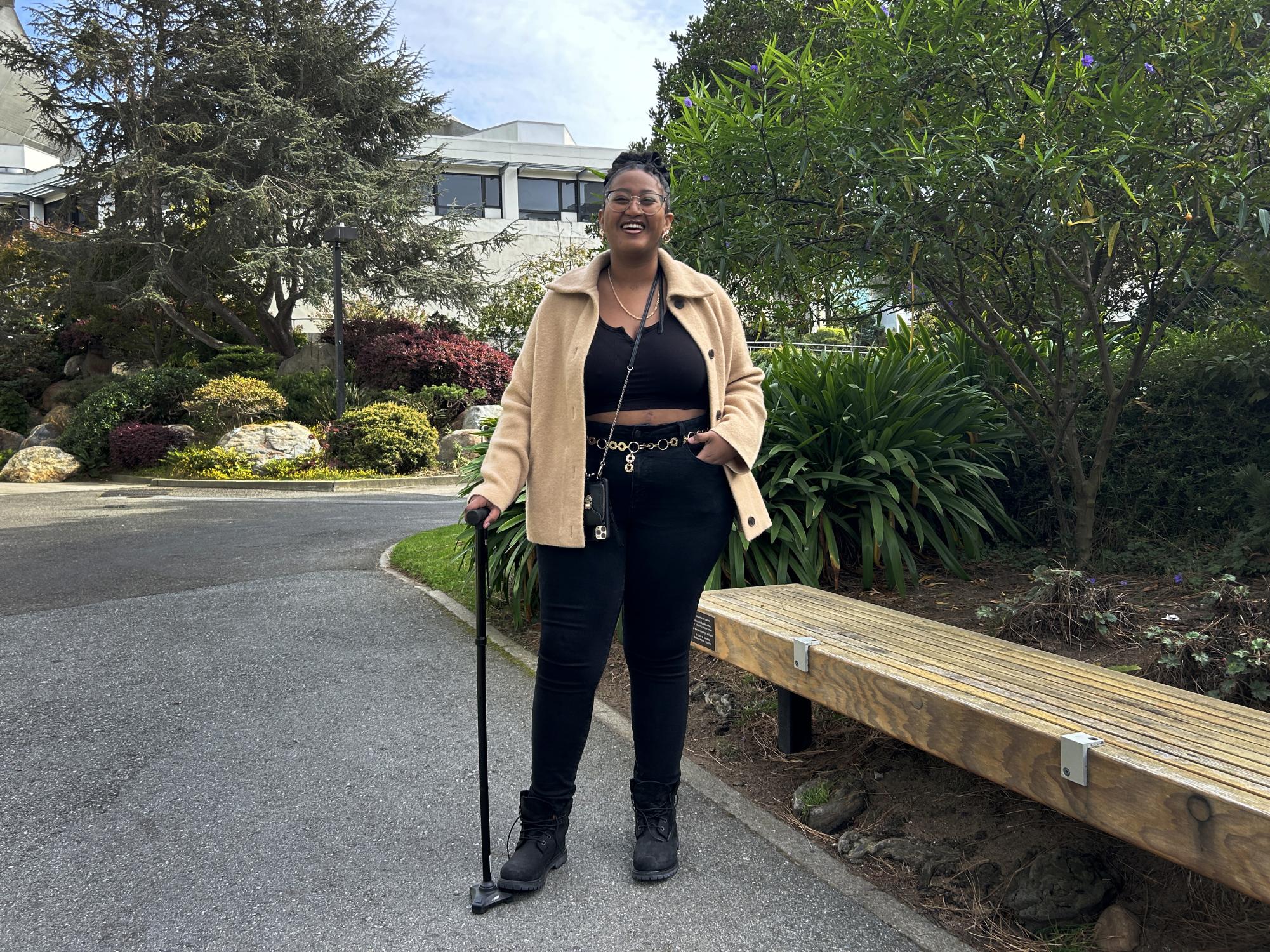
“Just because someone asks for something, that doesn’t mean it’s a reasonable accommodation,” Alghethy said. “And that’s why it is important for us to have documentation that presents their functional limitations, also known as symptoms, to allow us to identify and determine the most reasonable, appropriate accommodations.”
Tesfalidet says that DPRC makes the process very simple but awaiting her doctor’s signatures since the beginning of the semester has delayed any chance of entrance into the program.
“There aren’t really a lot of steps but the steps that you have to take are very tedious,” she said. “It’s not really because the doctors have a hard time writing them. It’s just sometimes the doctors are so busy that they don’t really do a good job of giving you these forms on time.”
Santiago acknowledges the lengthy timeline for students and wishes to make it more efficient but said shortages of both money and staff make it difficult.
“We have 3,000 students in our program,” Santiago said. “We have five disability specialists. So you can do the math. There’s a 600 to 1 student-to-specialist ratio.”
As a remedy, Santiago and DPRC specialists look to improve the system with faster processing. Alghethy said the program’s current drop-in policy allows students and staff to work one-on-one to get their support plan on the move.
“By expediting the process, sometimes we will ask them to sign a release and then we could reach out to their practitioner,” she said. “Depending on the disability we might be able to kind of brainstorm and think a little outside the box like some other types of documentation that we may be able to obtain.”
Even with this system in place, Tesfalidet still anticipates a doctor’s response to her many unanswered emails and phone calls. In the meantime, she said there are other accommodations SFSU’s campus could improve for students with disabilities such as more designated bathroom stalls and efficient escorting services.
Tesfalidet said she “didn’t use to think twice about any of this before I was disabled,” but now she takes the time to plan out how she’ll get to class on time with classes spread around campus and a cane to help her walk.
“If you’re running late, it’s not really helpful,” she said about SFSU’s cart transportation. “And if you make a call to use those types of services you have to wait for them to show up. It’s a lot to have to make sure that you are there much earlier.”
Karen McDade, a psychology major, also sees room for improvement. At 8 years old, McDade was diagnosed with Neurofibromatosis Type 2, a condition where noncancerous tumors grow in the nervous system, specifically for her, right behind the retinas.
McDade is hard of hearing, legally blind in her left eye and has limited movement with her left leg. To support her body, she uses a “ballpoint” cane that helps her identify objects and maintain balance.
In addition to broken and unattended disabled door buttons, she said her mobility has been made difficult in instances like in the psychology lab where there are bumps on the ground to protect wires next to computers.
“I obviously feel so uncomfortable walking over them,” she said. “By the time I get there, everyone has gotten seats next to the door so I kind of have to walk over those buttons and they’re high and unstable.”
McDade however finds that independence in life and education is what sets her apart from her disability. Rather than connect with the DPRC when she transferred to SFSU last year, she remained with the state-wide program, the California Department of Rehabilitation (DOR), which supports her with both financial help and transportation as she prepares for employment.
“It’s meant to have an individual pursue both education and career and also to be stabilized in it,” McDade said. “They provide services like, giving money for transportation, anything education — books and courses. They also help with a service called Redi–Wheels and SamTrans.”
Luckily for SFSU students, the DPRC collaborates with various stakeholders including the DOR to provide well-rounded opportunities. The DPRC also opens its doors to DOR San Francisco office representatives for students who are interested in “achieving success and graduating,” Alghethy said.
“We have someone on our campus, I think about twice a month, to be available for students if they’re interested in connecting,” she said. “And part of that may look like a lot of students who might be towards graduation and they want to get a job but they don’t know how to approach asking for employment accommodations.”
Before her diagnosis, Tesfalidet said she gave more time to others in need and was more selfless in the sense that “everything was alright with me in the world that it felt so minor.”
Now that those roles have shifted, Tesfalidet admits that she feels “selfish” for seeking her own help in a suitable program like the DPRC.
“To get back to that place again, it’s going to be more than just the program,” Tesfalidet said. “But I think that would at least alleviate some difficulties that I have. And maybe that would allow me to have more time to take care of myself, like maybe dedicating more hours during the week to do more physical therapy. Give self-love, right? I’m hoping that the program will do that.”
Editor’s note: This story has been updated for accuracy.





